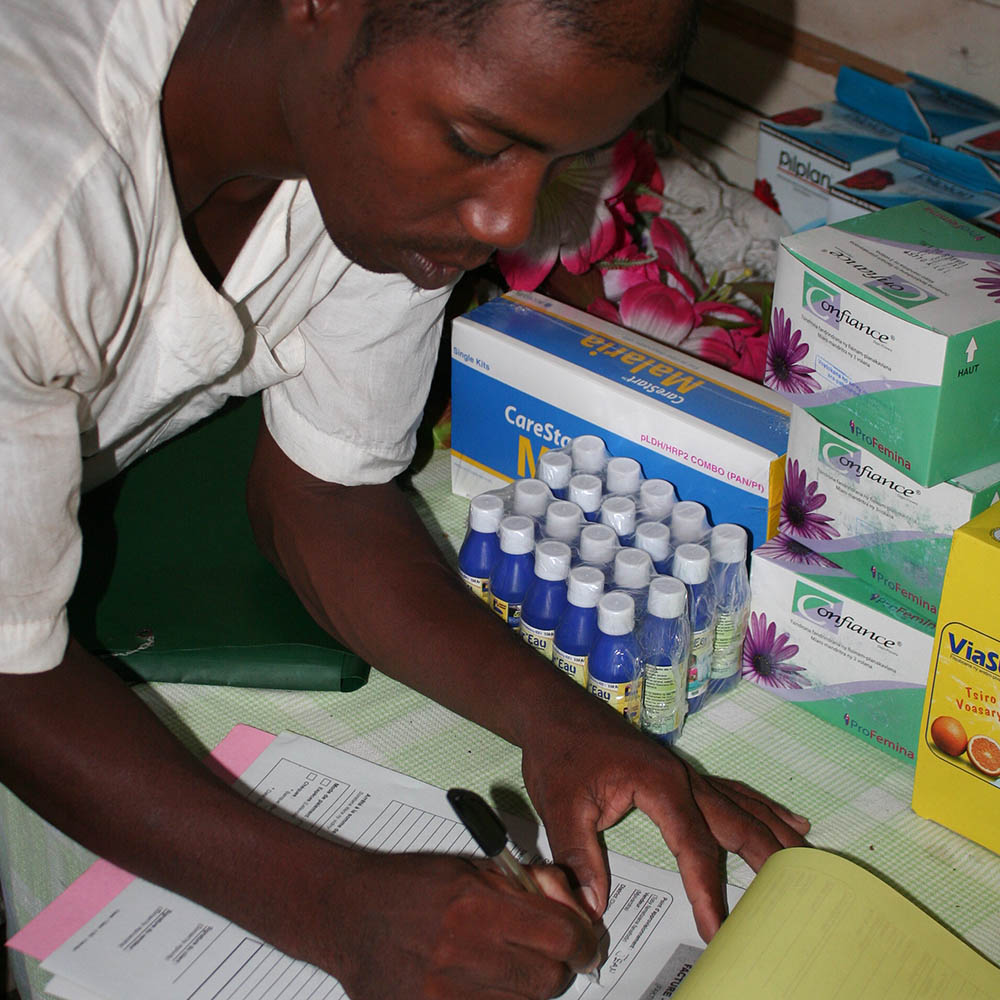
Jean-Marie François, supply point manager in Eastern Madagascar, fills out a stock management tool. Credit: Dr Lanto, PSI Madagascar
Jean-Marie’s community praises his dynamism and commitment to development. Before the establishment of his supply point in 2010, the 40 CHVs scattered throughout the commune did not have a reliable commodity supply channel. Supply points, like the one run by Jean-Marie, are privately owned, and regularly monitored and restocked with President’s Malaria Initiative (PMI) support to ensure uninterrupted availability of life-saving commodities, including rapid diagnostic tests (RDTs) and artemisinin-based combination therapies (ACTs). Jean-Marie, like the other supply point managers, volunteered to invest his time and resources into this activity. He received an initial on-the-job training, an initial stock of drugs and social marketing products, and stock management tools.
For Jean-Marie, stocking and distribution of lifesaving commodities is a great source of satisfaction. During the four years he has volunteered as a supply point manager, he created new relationships with CHVs from remote villages; the community members know him and appreciate highly the work he is doing. And, he has observed a significant reduction of malaria cases referred to health facilities by CHVs. “Cases of severe malaria decreased from one case per month to one case every four months,” he says. “I’m aware that my work is really important for the community, and it makes me proud.”
A total of 1,200 supply points are operational across 20 regions of Madagascar to ensure availability of life-saving commodities including ACTs and RDTs, serving more than 17,000 CHVs in rural areas.
